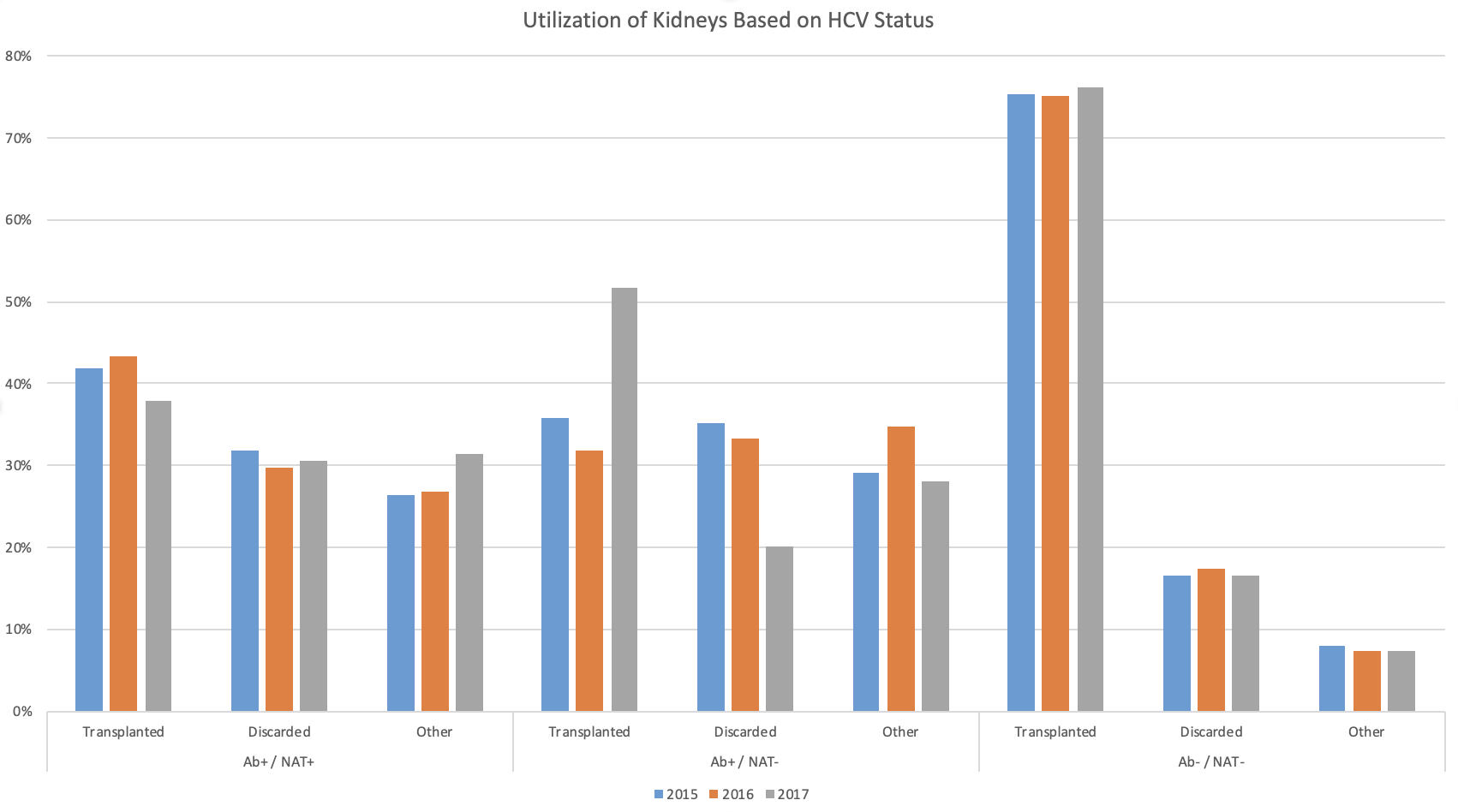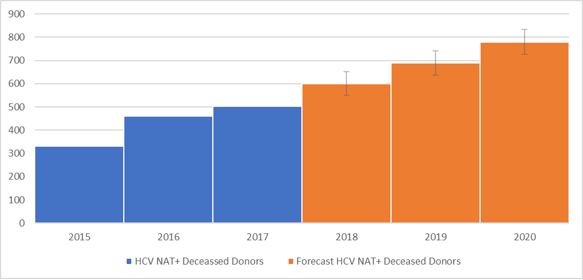Trends in Utilization of Deceased Donor Kidneys Based on Donor Hep C Antibody and Nucleic Acid Status
1Internal Medicine, UT Southwestern Medical Center, Dallas, TX, 2Surgery, UT Southwestern Medical Center, Dallas, TX, 3University of Chicago Booth School of Business, Chicago, IL
Meeting: 2019 American Transplant Congress
Abstract number: B130
Keywords: Cadaveric organs, Hepatitis C, Kidney transplantation
Session Information
Session Name: Poster Session B: Kidney Donor Selection / Management Issues
Session Type: Poster Session
Date: Sunday, June 2, 2019
Session Time: 6:00pm-7:00pm
 Presentation Time: 6:00pm-7:00pm
Presentation Time: 6:00pm-7:00pm
Location: Hall C & D
*Purpose: HCV nucleic acid testing (NAT) testing for deceased donors (DD) has been routine since 2015. We intended to look at utilization/discard rates based on donor NAT and antibody (Ab) status. Two recent trials show promising outcomes from transplanting viremic donor kidneys to a negative recipient.
*Methods: We queried the UNOS dataset for all deceased donor kidneys between January 2015 and December 2017.. The final study cohort (N= 55,842) were stratified into 3 groups: 1) Ab-/NAT- (n = 52,106); 2) Ab+/NAT- (n = 1,272); and 3) Ab+/NAT+ (n= 2,464).
*Results: We noted a consistent decrease in discard of Ab+/NAT- kidneys with concomitant increase in transplantation (Fig 1) and an increase in NAT+ donor kidneys. We forecast (utilizing time series exponential smoothing) based on trend between 2015 and 2017, that number of HCV viremic donor will increase to approximately 800 in 2020 Fig 2.
*Conclusions: Ab+/NAT- kidney transplants increased significantly in the study period. An increase in number of HCV positive and a parallel increase in such kidney utilization (especially from HCV positive kidneys to HCV negative recipients) may increase the DD pool and access to transplantation.
To cite this abstract in AMA style:
Ariyamuthu V, LaHoz RM, AbdulRahim N, Levea S, MacConmara M, Hwang C, Sandikci B, Tanriover B. Trends in Utilization of Deceased Donor Kidneys Based on Donor Hep C Antibody and Nucleic Acid Status [abstract]. Am J Transplant. 2019; 19 (suppl 3). https://atcmeetingabstracts.com/abstract/trends-in-utilization-of-deceased-donor-kidneys-based-on-donor-hep-c-antibody-and-nucleic-acid-status/. Accessed February 19, 2026.« Back to 2019 American Transplant Congress


